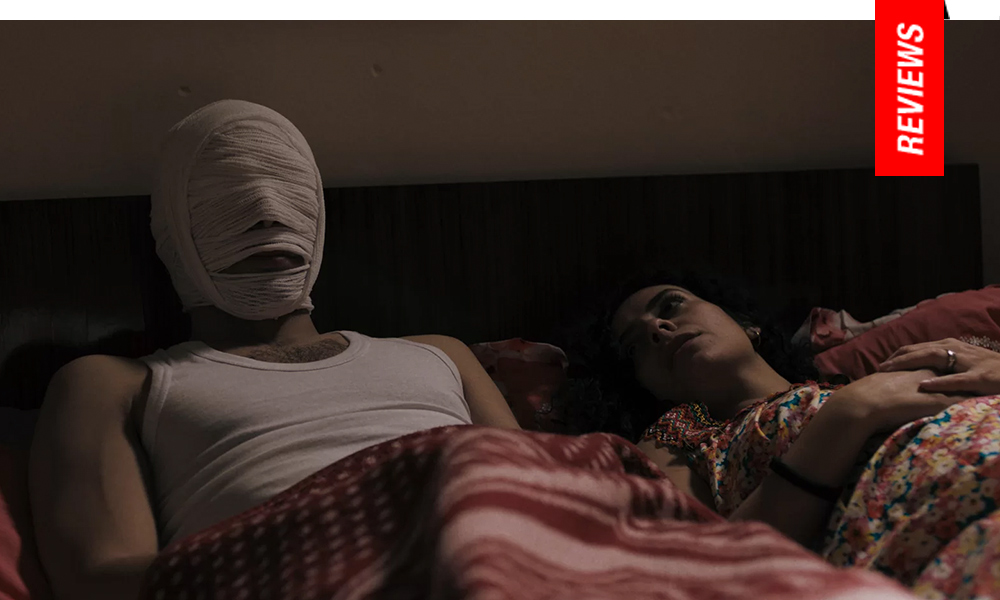A Demon in My View: Koussim Unleashes a Djinn
A generation spanning possession is at the heart of Roqia, the directorial debut from Algerian director Yanis Koussim, providing a novel entry in the indefatigable tradition of William Friedkin’s The Exorcist (1973), the eternal apogee of demonic terror which still eclipses all those who’ve arrived in its wake. Koussim gets kudos for not only eerily staging this familiarity in cultural specificity, but also treading into Islam, which has not been the customary religious ideation in which these pesky spiritual takeovers generally proliferate, at least cinematically. Mysteriously staged through an identity crisis scenario, Koussim keeps the audience guessing with a growing sense of dread as to what’s happening and why, wisely skirting around expository devilish details.
Told in three chapters, we’re introduced to a man named Cheikh, aka El Hadji (Mostefa Djadjam), an exorcist in early 1990s Algeria who seems to be quite adept at his calling, judging from the spirit infested children brought to his attention. In the same time frame, a young man named Ahmed (Ali Namous) survived a terrible car crash, but suffers from amnesia, which somehow has made life for his wife Selma (Lydia Hanni) more bearable. But it appears Ahmed has been possessed by an evil spirit, and with the help of his disciple (Akram Djeghim), El Hadji takes care of the problem. In the present day, El Hadji’s failing health seems to have instigated the return of this entity.
Roqia refers to reciting passages from the Quran for the purposes of quelling spiritual ailments (you know, like demons), which is exactly what El Hadji (which means ‘pilgrim,’ an honorary title bestowed upon those who have completed the pilgrimage to Mecca) utilizes on those requiring his specific needs (albeit reciting backwards, much to the horror of several bystanders). The scenario is most effective in the first act, focusing on the early 1990s possession of Ahmed, who suffers memory loss after a debilitating car accident requiring his face to remain completely bandaged for weeks. During his recuperation with his wife and son while in this condition, there are shades of Hiroshi Teshighara’s The Face of Another (1966) mixed with The Return of Martin Guerre (1982). It’s clear Ahmed is not quite himself (his son rejects him outright) but he’s also gentler and kinder, leading Selma to embrace this modified husband as a positive outcome of a terrible accident. So much so she practically wills him not to revert to his old self.
But then it’s revealed Ahmed is a host for a demon he picked up while undergoing military service in Afghanistan, and the parasite he carries is eventually awakened to continue a mission of what seems like mass demonic recruitment. Until El Hadji steps in. However, it would seem whatever was inside Ahmed has remained dormant until the present day, and the failing health of the exorcist allows for the entity to regain its powers, ravening for a new host (which the film allows us to believe its found based on the shocked musings of a detective trying to make sense of the carnage following the demon’s denouement).
While horror aficionados have consumed this type of narrative countless times, from all over the globe, Koussim does maintain a consistently unnerving tone, and despite the ultimate predictability of the finale, is successful in its narrative scope—-which is more than can be said for a litany of derivative possession films made in the US over the past several decades. At times, the attempt to calibrate the perfunctory ‘demon’ vocals veers into labored territory, sounding more like an imitation of Venom, the titular symbiote from the Marvel machine.
Koussim ends with a quote from Egyptian-American scholar Leila Ahmed, “Violent fundamentalism is not Islam but a distorted reading of its texts.” It’s a curious statement to end a demonic possession film with, considering it opens with a quote from Allah’s prophet regarding mankind’s innate vulnerability to be infiltrated by evil forces. Thus, the continued cycle connoted in the film’s final moments suggests neither Satan nor fundamentalism explains our propensity for inheriting darkness, as all of us are already vessels prone to the occupation of warping ideations.
Reviewed on September 1st at the 2025 Venice Film Festival (82nd edition) – International Critics’ Week. 89 Mins.
★★★/☆☆☆☆☆
